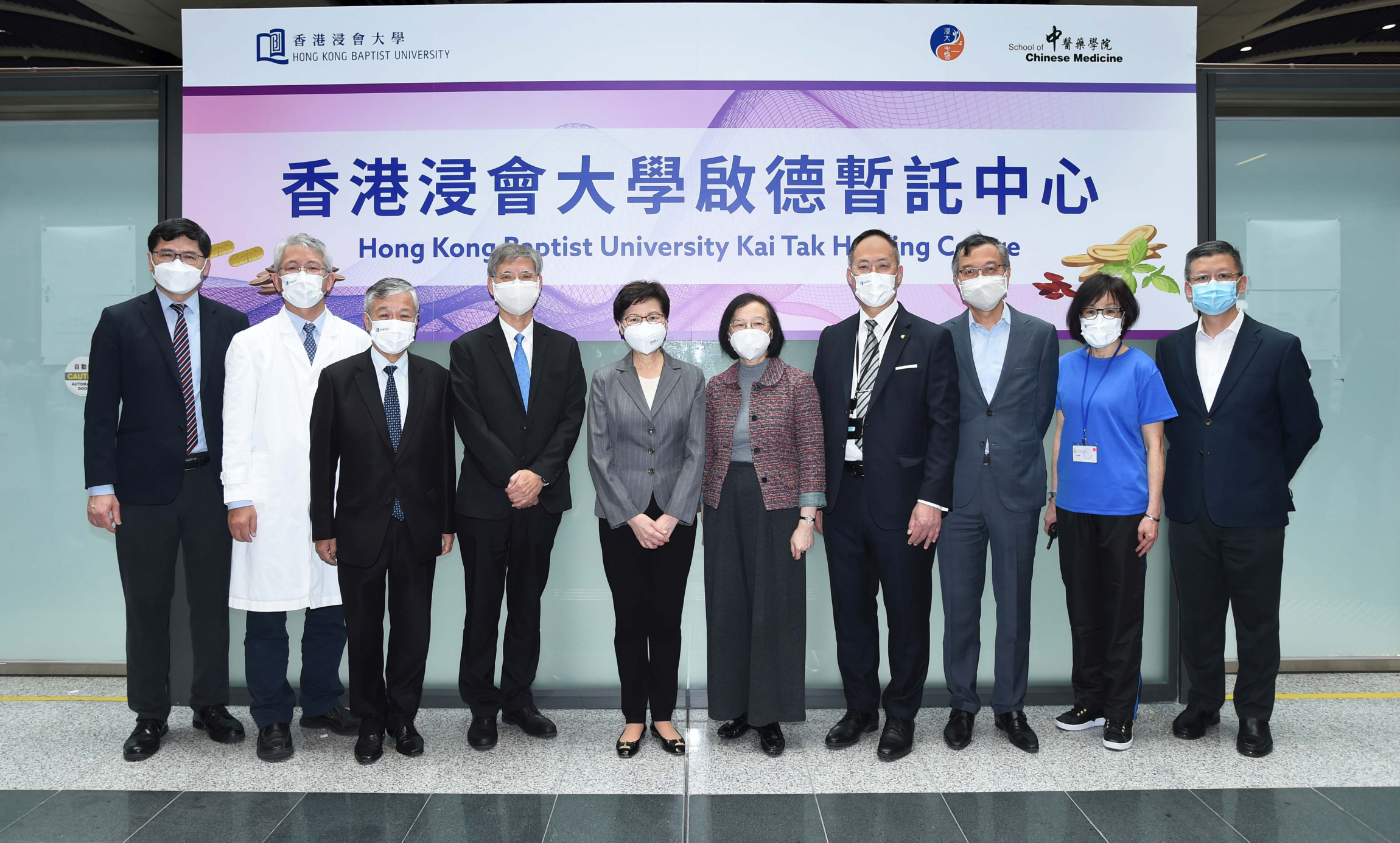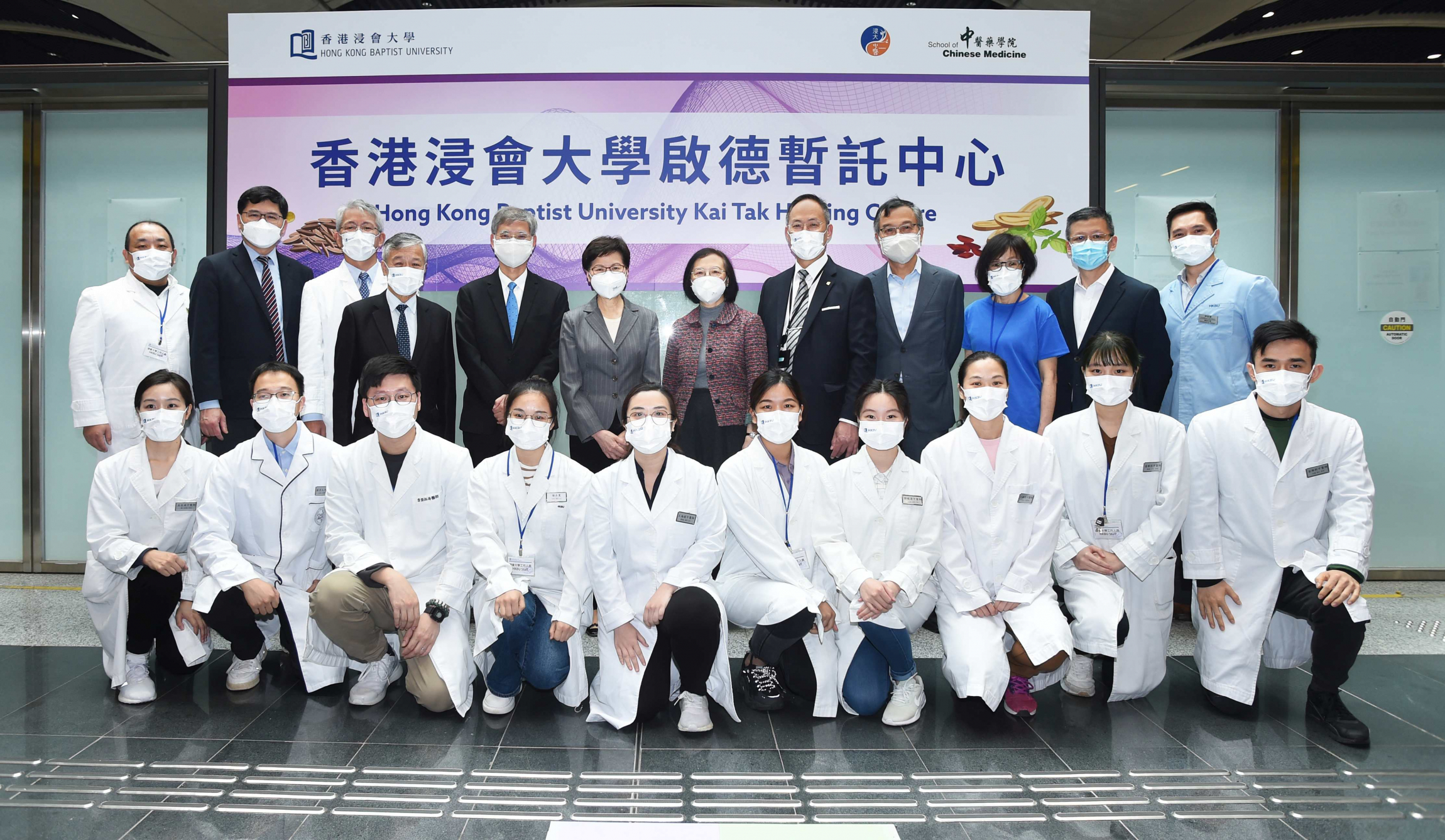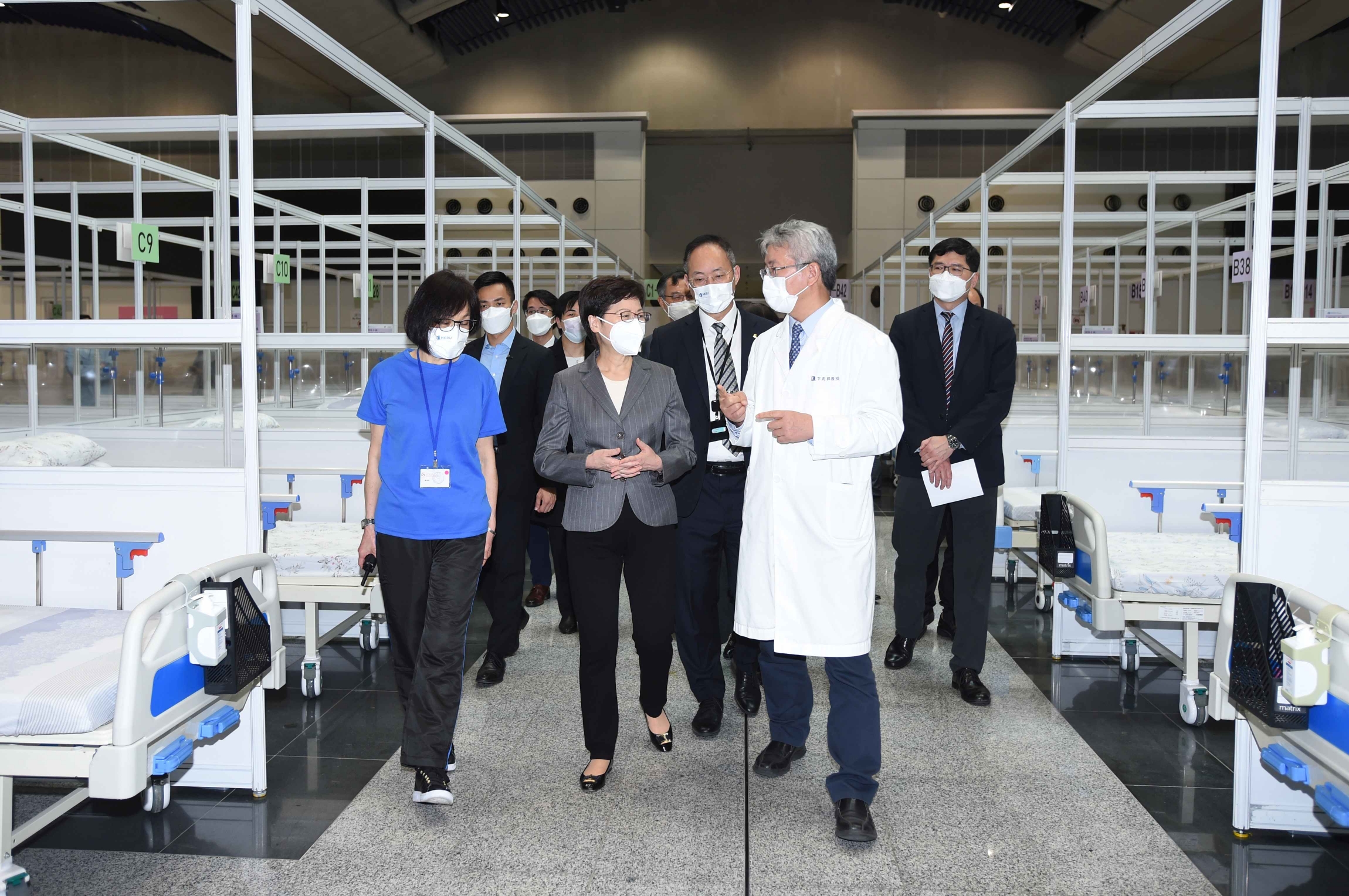Press Release
HKBU participates in the operation of the Kai Tak Holding Centre and offers Chinese medicine-based services
Wednesday, 30 Mar 2022
Hong Kong Baptist University (HKBU) has been appointed by the Social Welfare Department of the HKSAR Government as one of the operators of the Kai Tak Holding Centre (the Centre). HKBU has dispatched a team of Chinese medicine practitioners to provide Chinese medicine-based treatment services to the resident elderly COVID-19 patients with mild symptoms.
The Kai Tak Holding Centre, managed by the Social Welfare Department, has come into operation in phases since the latter half of March. It has been designated for the admission of elderly COVID-19 patients with mild symptoms who have been discharged from the hospitals of the Hospital Authority, and residents of elderly care homes who need to be quarantined after assessment. The Centre provides a total of 1,200 beds, and the 393 beds operated by HKBU will be put into service tomorrow (31 March).
Mrs Carrie Lam, Chief Executive, together with Professor Sophia Chan, Secretary for Food and Health, and Dr Law Chi-kwong, Secretary for Labour and Welfare of the Hong Kong Special Administrative Region, visited the Kai Tak Holding Centre today (30 March) for an overview of the beds being managed by HKBU. Mr Paul Poon, Deputy Chairman of the Council and the Court, and Professor Alexander Wai, President and Vice-Chancellor of HKBU, introduced the Chinese medicine treatments and the other care services offered by the University to the resident elders.
The School of Chinese Medicine (SCM) at HKBU has dispatched a Chinese medicine team, which comprises 11 Chinese medicine practitioners, to provide Chinese medicine treatment services to the elderly residing in the Centre with the sponsorship of the Food and Health Bureau. They will join hands with the on-site doctors and pharmacists, as well as the care workers from the Mainland, to take care of the other medical and pharmaceutical needs of the elders. HKBU installed systems for music broadcast for some beds to help alleviate patients' anxiety and stress, and will provide patients with emotional support and counselling service. Town Health International Medical Group will be responsible for the provision of Western medicine treatment services. In addition, HKBU will provide a Chinese medicine prescription service for the Centre's 393 beds that are operated by the Haven of Hope Christian Service, and this initiative is providing patients with more diverse treatment options.
Furthermore, SCM has arranged for students specialising in Chinese medicine and pharmacy to conduct practicum in the Centre. Nursing teachers and students from the School of Continuing Education at HKBU are also supporting the professional nursing staff hired by the Centre, and they are helping them provide daily care to the resident elders.
Professor Alexander Wai said: "HKBU has been offering free online Chinese medicine prevention and treatment services to COVID-19 patients, as well as their carers and close contacts since mid-February, with satisfactory results. This initiative is supported by a generous donation pledge of HK$10 million from the Tencent Charity Foundation.
"We deeply believe that Chinese medicine can play a more active role in Hong Kong's fight against the pandemic. The appointment of HKBU as an operator of some of the beds in the Kai Tak Holding Centre provides an opportunity for the University to leverage its strengths in Chinese medicine clinical service and research, and it also allows us to demonstrate our caring spirit by offering appropriate treatments to more COVID-19 patients."
Professor Bian Zhaoxiang, Associate Vice-President (Chinese Medicine Development) and Director of the Clinical Division of SCM at HKBU, said: "Participation in the operation of the Kai Tak Holding Centre can fully utilise HKBU"s existing expertise in terms of the provision of Chinese medicine outpatient services. At the same time, this collaboration with Western medicine, pharmacy and nursing teams will enrich the clinical experience of HKBU's Chinese medicine team and help them respond to large scale public health challenges. Such experience will also provide the University with a valuable reference for the future operation of Hong Kong's first Chinese Medicine Hospital."
- End -


